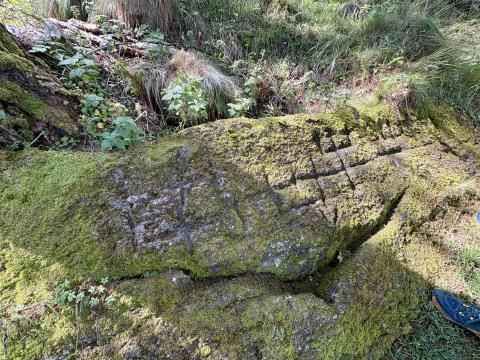GEAT Val Gravio Refuge: A Story of Stone, Forest, and Memory
Submitted by rbeltram on Sat, 04/10/2025 - 22:08
Nestled in the heart of the Orsiera Rocciavrè Natural Park, in the Gravio valley above San Giorio di Susa, stands the GEAT Val Gravio Refuge—a typical alpine hut built in 1928 by the Gruppo Escursionisti Accademici Torinesi (GEAT). Surrounded by lush nature and protected from cold winds thanks to its north-south orientation, the refuge is accessible only on foot, via ancient mule tracks that wind through chestnut, beech, and larch forests.

Since its foundation, the refuge has been a landmark for hikers, climbers, and mountain lovers, offering simple and sustainable hospitality: electricity from renewable sources, wood heating, traditional Piedmontese cuisine, and a warm, family-like welcome.

But its history also bears a deep scar.

On May 10, 1944, during the Nazi-Fascist roundup operation known as Habicht, the Sangone Valley and surrounding areas were ravaged by extreme violence: battles, massacres, deportations, and the burning of hamlets such as Forno and Pontetto. In this context, the GEAT Val Gravio Refuge was set on fire by German and Republican troops, accused of sheltering partisans. Five young men from Coazze were executed and buried in a mass grave, later exhumed on May 18. The Garibaldi Brigades denounced torture and reports of men being buried alive—one of the most horrific chapters of the Piedmontese Resistance.
The destruction of the refuge was a reprisal against partisan groups active in the area and marked a moment of mourning for the Turin hiking community.

In 1950, the refuge was rebuilt thanks to the solidarity and hard work of GEAT members, and in 1999, it was restored again. Today, the Val Gravio Refuge is not only a place of rest and natural beauty but also a symbol of resilience and remembrance, a silent witness to a story that intertwines the passion for the mountains with the sacrifice for freedom.
The visit made today to the Val Gravio Refuge by Riccardo Beltramo and Stefano Duglio is part of the activities of the Observatory on Tourism in Mountain Refuges (Scientific Coordinator: Prof. Stefano Duglio), launched thanks to the UNITA Project in collaboration with partner universities in Brașov and Zaragoza.
